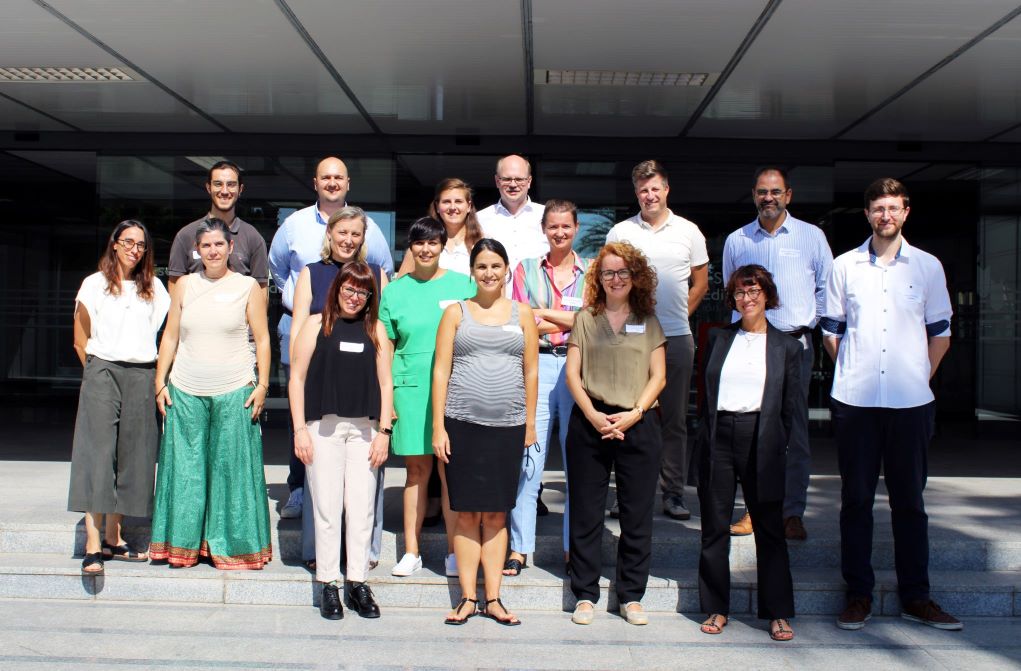
El proyecto iEPB, financiado por el programa LIFE Clean Energy Transition, tiene como objetivo mejorar el rendimiento energético de los edificios de la UE al sincronizar evaluaciones de Rendimiento Energético de Edificios (EPB) y desarrollar un modelo de datos común. Coordinado por el Instituto Valenciano de la Edificación Fundación (IVE), el proyecto busca impulsar la implementación de herramientas como el «Certificado de Eficiencia Energética, CEE» (en inglés «Energy Performance Certificate, EPC») y el «Indicador de Preparación para Aplicaciones Inteligentes, SRI» (en inglés Smart Readiness Indicator), con el objetivo de aumentar la armonización en la UE. Tres países servirán como ecosistemas de prueba: España, Países Bajos y Austria. A continuación puedes leer la noticia completa en inglés:
The building sector has a crucial role in achieving the legally binding target of EU’s climate neutrality by 2050 and the increased ambition of a 55% cut in net emissions by 2030. This means that the building sector should promote the adoption of energy performance criteria and the implementation of solutions that contribute to emissions’ reduction. The upcoming recast of the EPBD is part of the comprehensive policy package to enable action to meet this increased ambition. Member States have struggled in the past to transpose EPBD provisions, causing relevant instruments (i.e., EPCs) to be implemented with significant gaps and deficits.
iEPB is a LIFE project funded under LIFE Clean Energy Transition programme, which aim is to upgrade the energy performance of the EU’s building stock by increasing the synchrony between multiple EPB (Energy Performance of Building) assessments, notably between existing Energy Performance Certificates (EPCs) and other complementary instruments, like the Smart Readiness Indicator (SRI) and energy renovation recommendations.
Such integration will be made by developing a common data model for EPB Assessments, which could be further expanded and scaled in the future to enable the integration of additional assessments. This new data model should become common and applicable across the EU, increasing coherence and harmonisation among Member States.
The proposed action will support the Member States in reacting to the upcoming EPBD recast provisions while tackling existing deficiencies of the Energy Performance Certificate (EPC) design and implementation (top-down approach). It is also geared toward supporting the market up-take of EPB Assessments’ instruments, notably EPC and Smart Readiness Indicator (SRI) by fostering the implementation synergies between them and providing added value to key stakeholders (bottom-up approach).
iEPB is coordinated by the INSTITUTO VALENCIANO DE LA EDIFICACION FUNDACION (IVE) and the consortium is made up of experts in relation to EPBD policy at EU level and national/regional implementation; experts in official EPC software, who will manage the digital tool development; companies with expertise in marketing and exploitation of research-to-market results and European outreach.
According to Eva Lucas Segarra, project coordinator: “The most interesting part of this project is that it considers all the relevant stakeholders related to the energy performance of buildings. It will enhance the current EPB Assessment’s value chain by improving cost-effectiveness of practice for EPB assessors allowing them to harvest all the relevant building data for any EPB assessment in a one single visit, reflecting new systems and innovative technologies from product manufacturers, supporting Member States in the implementation of the upcoming EPBD recast provisions and, what really makes the difference, improving the understanding, use, accuracy and trust of EPB Assessments by end-users.”
The added value of the proposed approach for building professionals, product manufacturers and end-users will be demonstrated in three different operational ecosystems: Spain, Netherlands and Austria.
The piloting countries have been selected to represent different degrees of EPBD implementation notably regarding EPCs, building stock characteristics, diverse market structure and culture.
In each ecosystem, representatives of key value chain stakeholders have been identified and engaged to ensure the involvement of real actors and access to actual building data to validate iEPB’s solutions.
One of the main outcomes of iEPB will be development of a digital tool – iEPB web app – with two interfaces, one for building professionals and the other for end-users. The former will be geared to facilitate the data gathering process in on-site visits to buildings by EPB assessors and independent experts, proving the added value of iEPB schema’s multi-EPB assessment integration. On the other hand, the end-user interface will enable end-users to access the joint multi-EPB assessments’ results in a flexible, interactive, and understanding manner. Both interfaces will be adapted to each national context.
The project started officially on October 1st and was launched during the Kick-off Meeting that took place in Valencia, Spain on October 3rd and 4th. In iEPB, IVE will also act as representative from the Spanish Demonstration Ecosystem where the results of the project will be applied by professionals in real residential buildings and hotels. “IVE is grateful to lead such a strong consortium in this ambitious project, towards improving the energy performance of the building stock, and consequently, the quality of life of the citizens who occupy and inhabit them”, remarks Miriam Navarro Escudero, Head of the International R&D&i Department at IVE.
Contacts:
Project coordinator:
Eva Lucas Segarra, Instituto Valenciano de la Edification, iEPB_coordinator@five.es
Communication Manager:
Ilaria Bonetti, Fondazione ICONS ilaria.bonetti@icons.it
Andre Zhulpa Camporesi, Fondazione ICONS andre.zhulpacamporesi@icons.it
Project website: www.iepb-project.eu